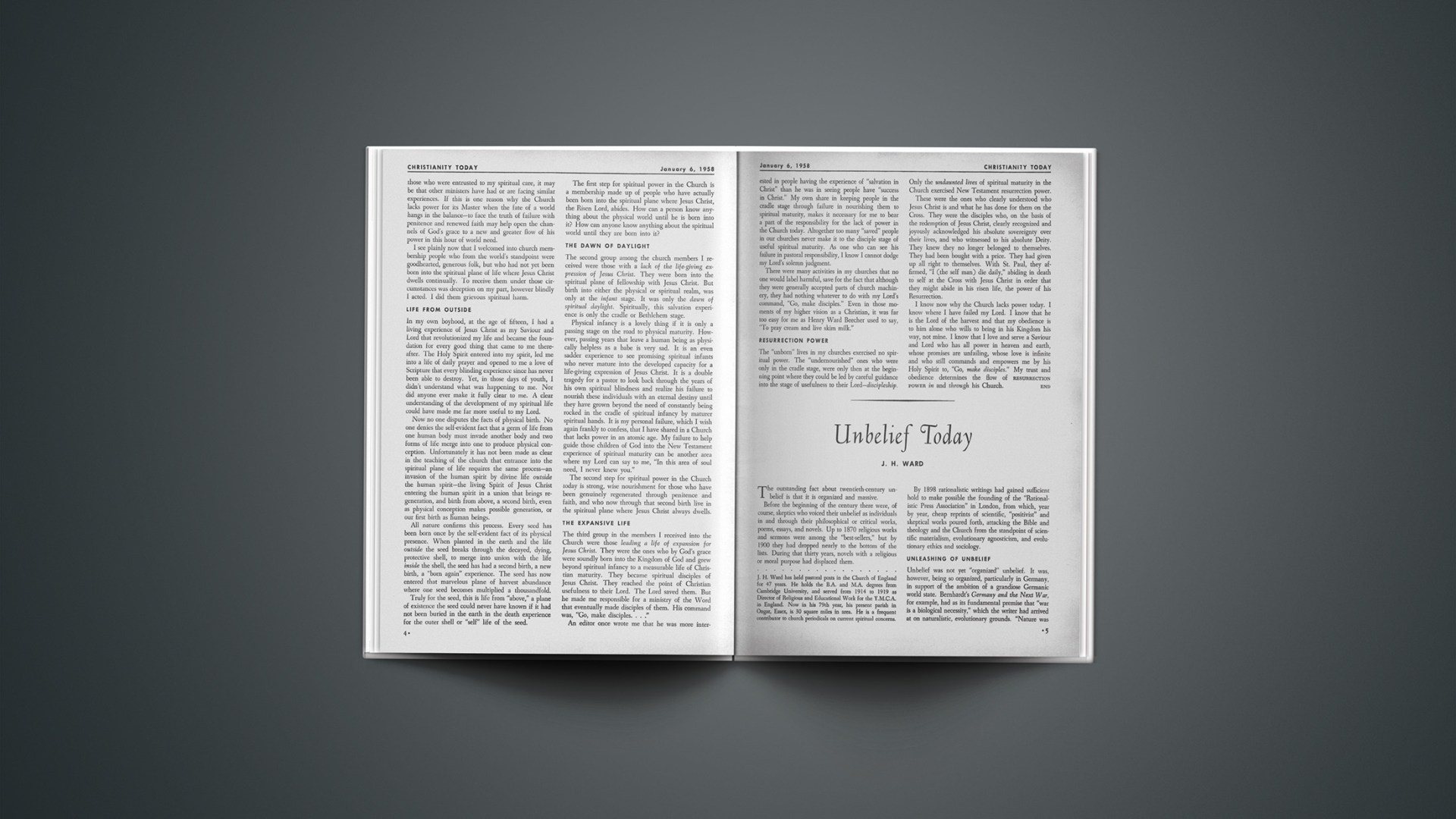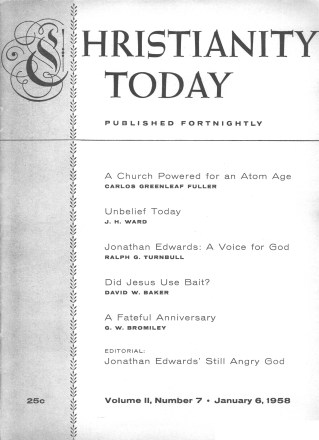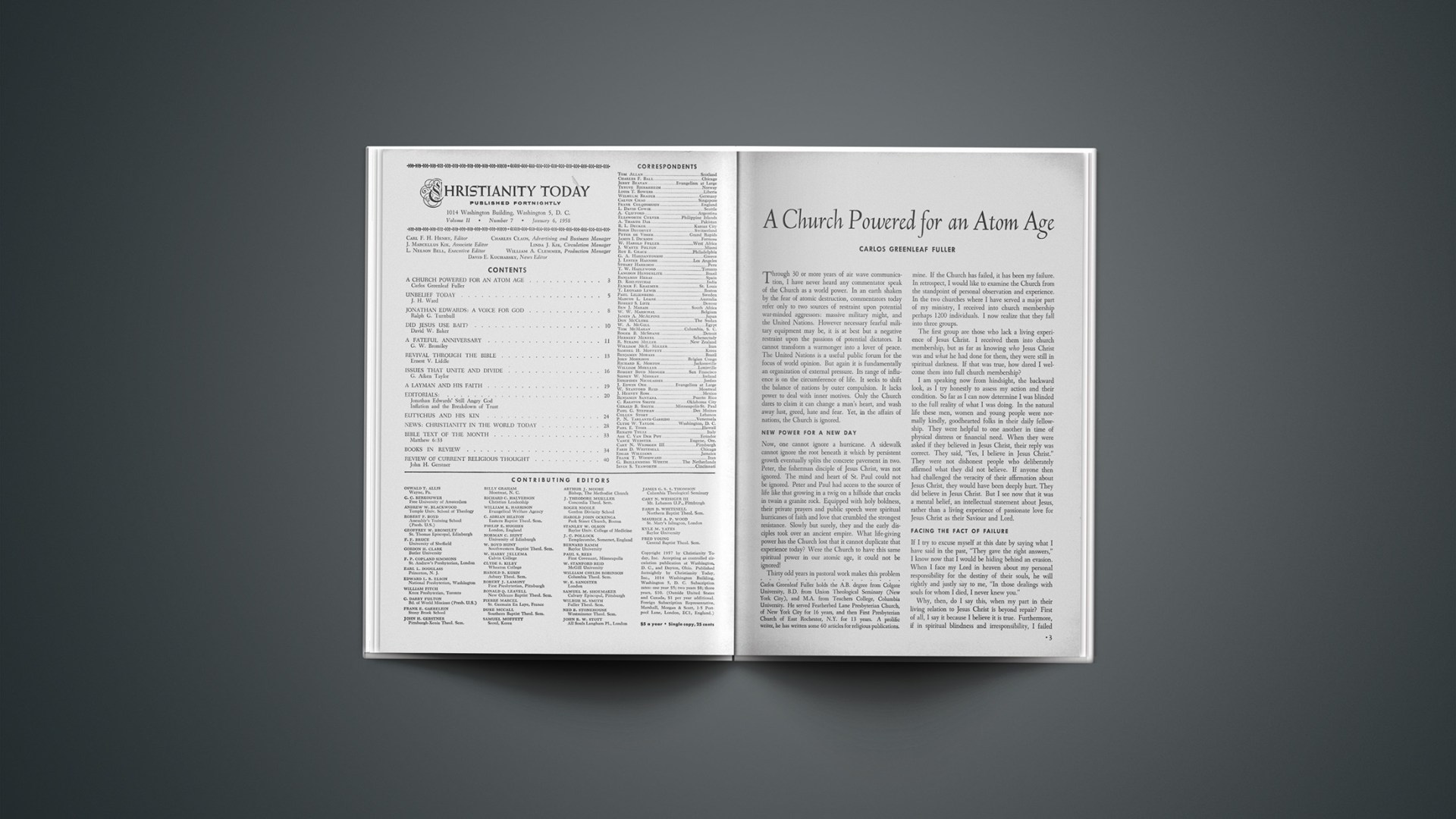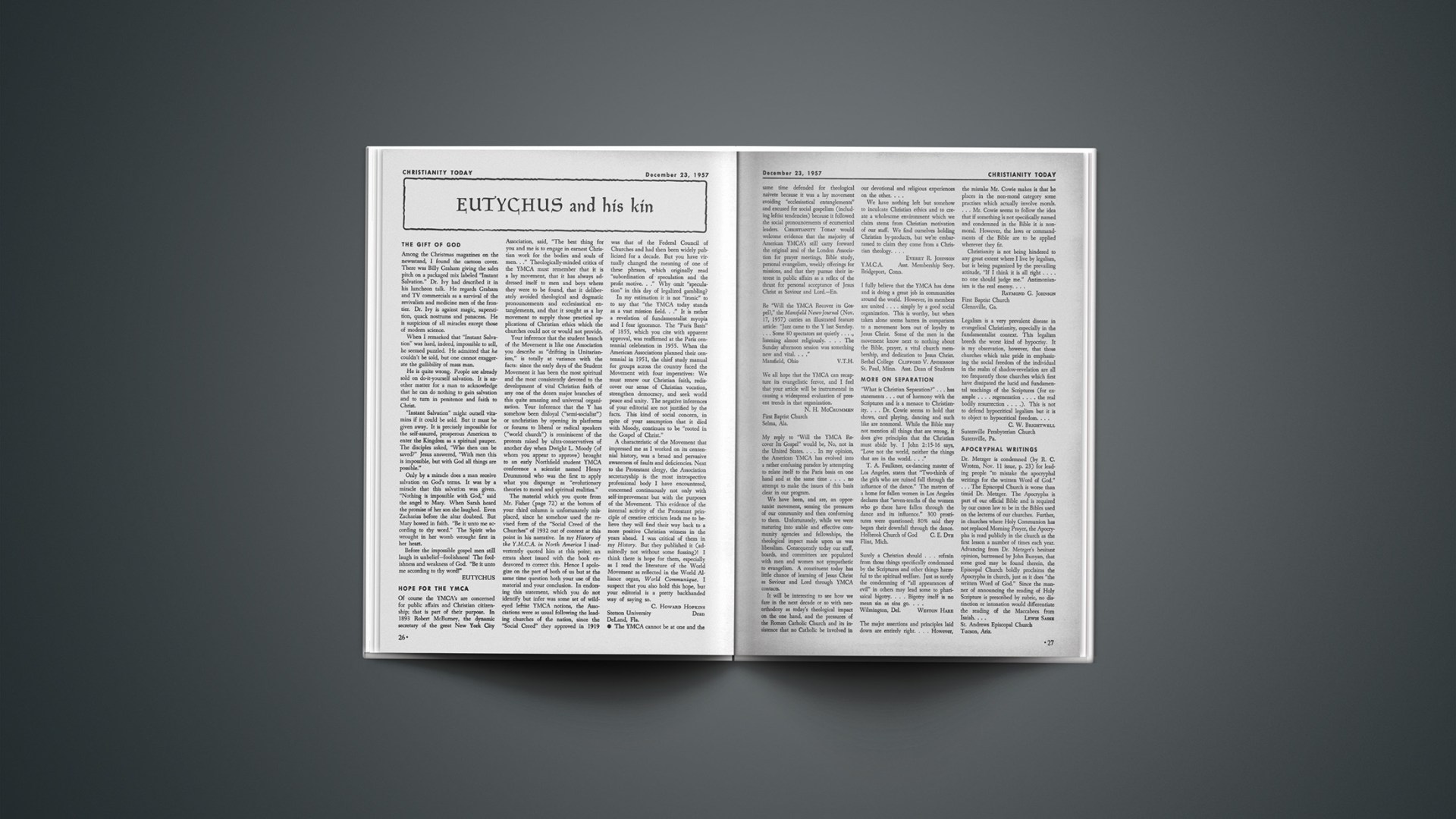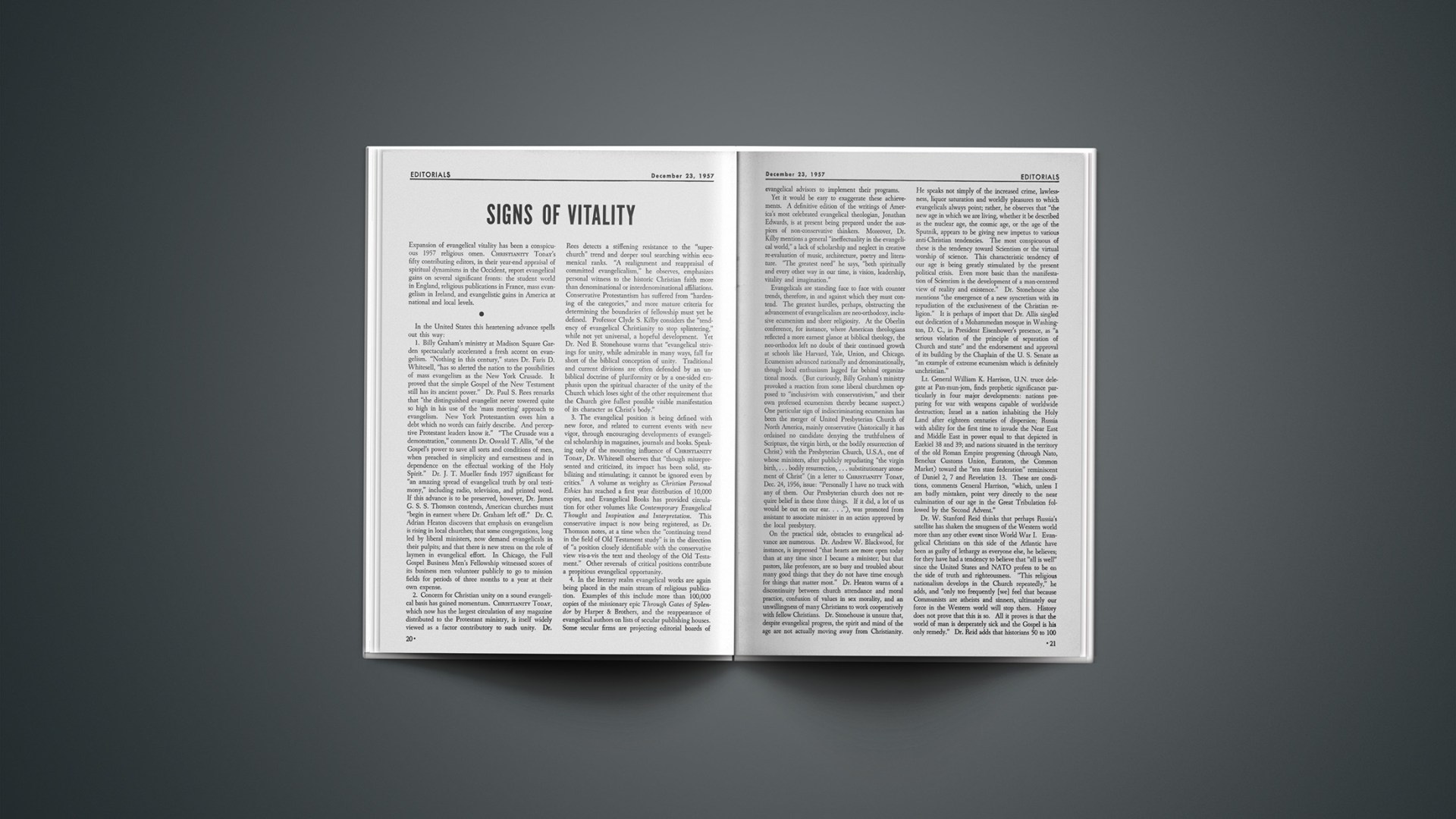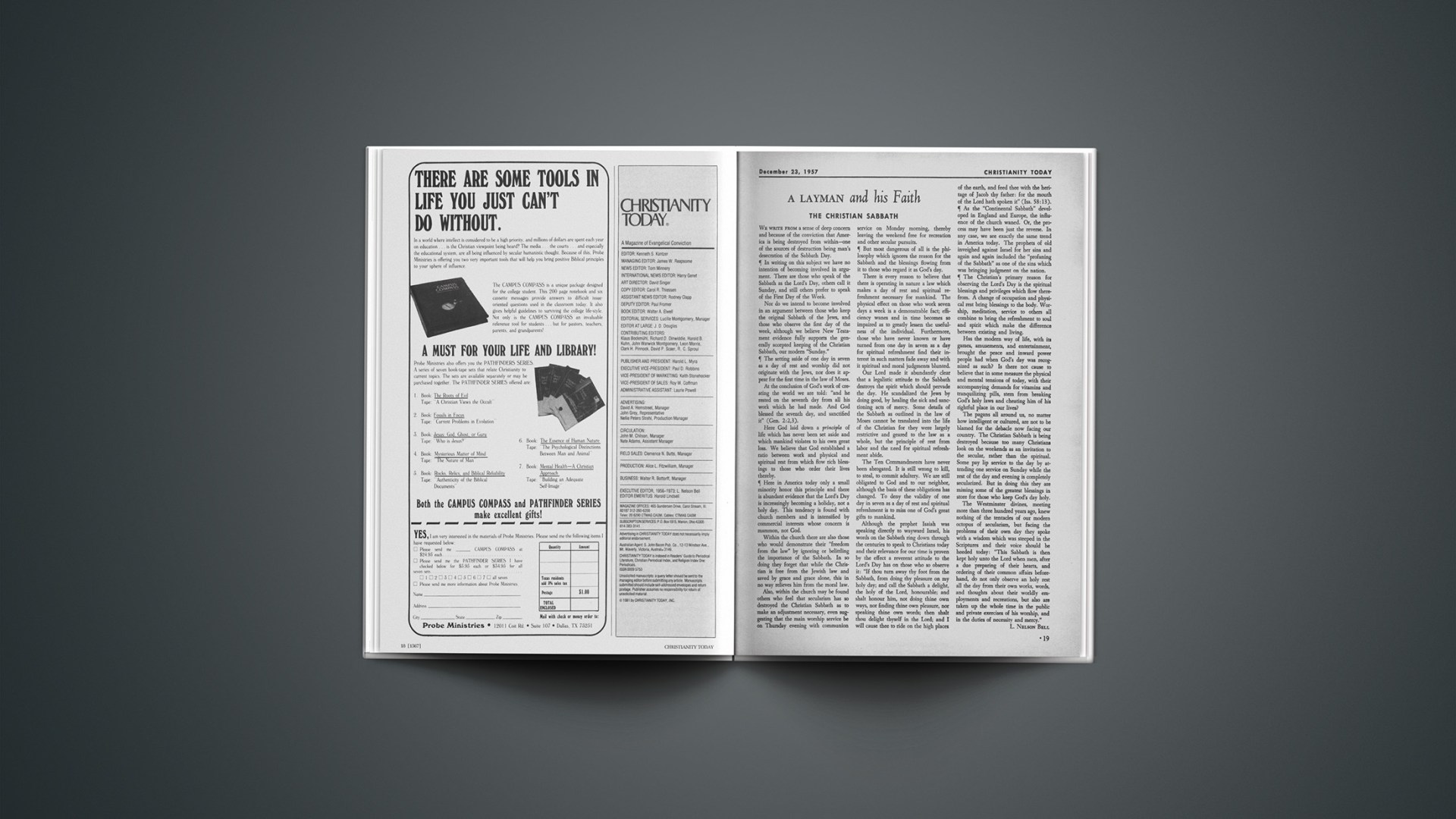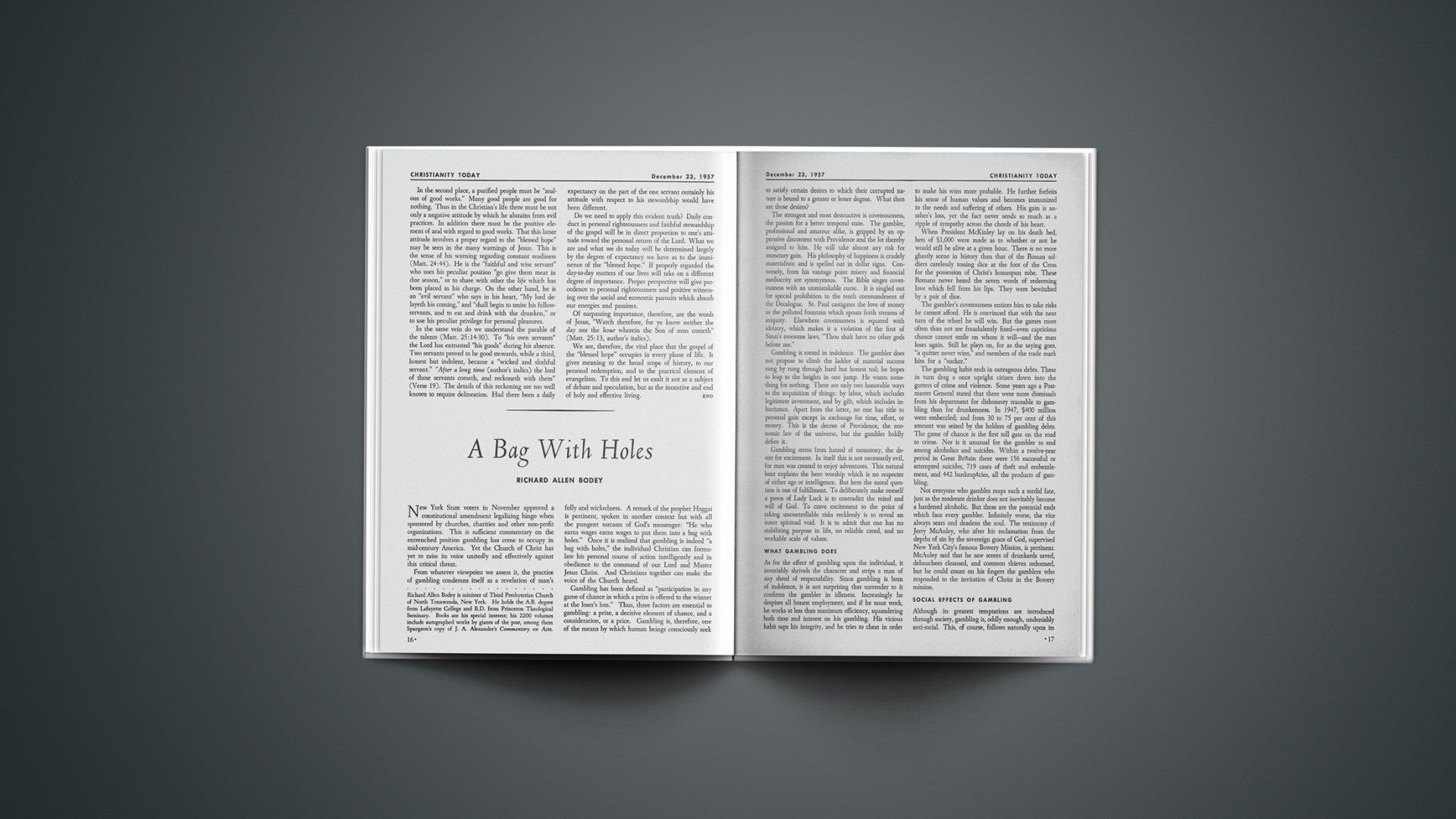The outstanding fact about twentieth-century unbelief is that it is organized and massive.
Before the beginning of the century there were, of course, skeptics who voiced their unbelief as individuals in and through their philosophical or critical works, poems, essays, and novels. Up to 1870 religious works and sermons were among the “best-sellers,” but by 1900 they had dropped nearly to the bottom of the lists. During that thirty years, novels with a religious or moral purpose had displaced them.
By 1898 rationalistic writings had gained sufficient hold to make possible the founding of the “Rationalistic Press Association” in London, from which, year by year, cheap reprints of scientific, “positivist” and skeptical works poured forth, attacking the Bible and theology and the Church from the standpoint of scientific materialism, evolutionary agnosticism, and evolutionary ethics and sociology.
Unleashing Of Unbelief
Unbelief was not yet “organized” unbelief. It was, however, being so organized, particularly in Germany, in support of the ambition of a grandiose Germanic world state. Bernhardt’s Germany and the Next War, for example, had as its fundamental premise that “war is a biological necessity,” which the writer had arrived at on naturalistic, evolutionary grounds. “Nature was deemed to be red in tooth and claw.” The “struggle for existence” and “the survival of the fittest” were natural phenomena, and “fittest” meant “most forceful.” Thus, Bismarck’s “Blood and Iron” theory was justified on naturalistic grounds, and the doctrine “Might is Right” was widely preached and practiced.
The war of 1914–18 undoubtedly stemmed directly from this root, and the world at large should have learned a lesson, but it failed to do so despite the 12 million precious lives that holocaust extinguished. Even before the Armistice was signed Lenin, with, be it observed, the help of Germany, was busy organizing the foreboding Russian Revolution of 1917. The basis of that Revolution was “unbelief,” and it just as patently was of the same naturalism that lay behind the German bid for world power. It was, of course, Marxist through and through—a materialistic interpretation of history, with progress to be achieved by class war. Its objective was a Communist world state, professedly egalitarian, but in fact a robotian enslavement of the common man by the brutally strong and animal-istically cunning. Tsarist tyranny was replaced by the tyranny of even worse ruthless brute force. If Nature was “red in tooth and claw,” the new Russian despots showed that man could easily beat her record in murderous blood baths, cruelty and viciousness.
This same basic creed took another turn in Italy in 1922 (Mussolini) and in Germany in 1933 (Hitler), which in 1939 plunged the whole world into World War II. Again murder and destruction stalked abroad and ended in the horrors of Hiroshima and Nagasaki. But while Fascism and Nazism hated Communism, they nevertheless invoked its aid against the democracies. Stalin, tongue in cheek, gave aid, which ended in a stricken Poland and an enslaved Eastern Europe. When these later turned on Stalin, the Russian Bear was, strangely enough, upheld by the democracies.
The democracies thought they had won the war. Doubtless they had, but Russia annexed territory all around, seized power and is now the most extensive force—if not the mightiest—in the world. Based on what? Complete unbelief. No God, no spirit in man, no moral or spiritual values, no freedom, no compassion, no semblance of shame, no sense of sin or evil. Russian Communism, thrusting its tentacles into every part of the globe—to Egypt and the Arab world, to China and the Asian world—is unbelief, massive, organized, Satanic.
Complete Secularization
This is the unbelief of the twentieth century, different from the unbelief of any previous age. An American writer has said that “for perhaps the first time in history we are confronted with complete secularization of the opinions, emotions and practices of mankind.” He was writing a judgment of the democracies in particular. He would have used a stronger word than “secular” to describe the Russian communistic menace. He might have said the complete “animalization” of the opinions, emotions and the practices of people, for at bottom it is dehumanization. He might have said that this “unbelief” is the organized embodiment of hell itself: anti-God, anti-Christ and man, anti-moral values—Lucifer let loose.
For Christians there can be no “peaceful co-existence” with such a creed. God and the Devil cannot possibly be at peace. Nor can there be any compromise. It is war—war to the death. But Russian Communism is “organized” as a powerful state—a state that means business and has no scruples as to how it achieves its end.
Amiel’s prophecy of 1856 is coming true in 1956. “What terrible masters,” he wrote, “would the Russians be if ever the might of their rule should spread over the southern countries! A polar despotism of tyranny such as the world has not yet known, silent as darkness, keen as ice, unfeeling as bronze, a slavery without compensation, or relief; this is what they would bring.” The truth of that warning is evident today as the Russian Bear’s paw reaches out far beyond the southern countries—to Egypt and the Arab world. That paw has already grabbed China and much of the Asian world, and its claws are even in the Americas and beyond the Southern Cross.
We know, of course, that the almighty Russian communistic world state opposing itself to Almighty God cannot win. In the end it will destroy itself. “God is not mocked.” But meanwhile it can devastate and destroy and enslave. It can bring in George Orwell’s “1984”; it can repeat on a much larger scale Hiroshima and Nagasaki. Vast masses of mankind are fearfully aware of this—the Western democracies especially.
Towers Of Babel
But what do we find among these powers? A clear understanding diagnosis of the situation? Indeed no. Rather, we find them building, out of their own proud self-sufficiency and for their own self-glory, materialistic, God-defiant Towers of Babel. They erected a “Tower” called the League of Nations after the First World War. It ended in “Babel.” After the Second World War they erected the United Nations. Is that becoming “Babel” as well?
Why did the League of Nations fail? It failed because it did not abjure “unbelief.” If the United Nations fails it will be from the same cause: lack of faith in God. How can men be united in spirit and truth if there is not worship of God in spirit and in truth—if men do not believe in God?
Is it not the same with the other “isms”—Socialism, Humanism? What hope have these against Communism if men are building them upon the same major premise—whose name is Naturalism? Communism is, after all, devilishly logical—if there is no God and no spirit in man. Are not all our “isms” contradictions in terms if Nature is all—if materialism is the real—if secularism is our master? Is it possible to deduce “Liberty—Equality—Fraternity,” from a godless nature, or a godless world of men? Nay, it is impossible.
But this means abjuring our own “unbelief.” It means shedding our anthropocentrism, our self-sufficiency and self-glory. It means recognizing our utter dependence. It means rehabilitating the Bible’s major premises: “In the beginning God created,” and “God made man in his own image,” “God breathed into man the breath of life, and man became a living soul.” It means reading the Garden of Eden story with spiritual insight and understanding; not with mockery as an ancient tale, but as revelation. Therein is unfolded the wrongheadedness and pride of man; he imagined he knew better than God. And that imagination, so man’s history shows, has ever been the forerunner of calamity; it is shouting this today louder than ever in man’s history. Man does not and cannot know better than God. It is only fantastic, conceited, self-centered unbelief that makes him follow that ignis fatuus which is today the match that (unless there is a very radical change in the spirit of society) will explode the H-bomb.
Changing The Social Spirit
Radical change in the spirit of society! But how is this to be brought about? Is politics equal to the task? If so, which brand? Have not we in this century pretty well tried them all, and fruitlessly, from Fascism to Communism, and all the brands in between these extremes, which literally stand back to back and scream different slogans concocted in the factory of Naturalism? Can economics do it? Even the economics of the welfare state? Can scientific materialism and its offspring, materialistic Socialism, change the spirit of society when it does not even behave in the spirit of man? Can technical education perform this miracle of change? Look again at Russia, which probably has more technicians than even the United States; are they changing the spirit of Russian society? Recent events in Hungary give an appalling answer.
One is neither blind to the importance of these activities, nor does one wish to disparage their service to mankind in their proper sphere. But it is obvious nonsense to think that they can, by their collectivism and environmentalism and this-worldism, change the spirit of society. Jeremiah long ago asserted in the name of God, “The heart is deceitful above all things and desperately wicked: who can know it?” A greater than Jeremiah pronounced a similar judgment: “From within, out of the heart of men, proceed evil thoughts, adulteries, fornications, murders, thefts, covetousness, wickedness, deceit, lasciviousness, an evil eye, blasphemy, pride, foolishness: all these things come from within, and defile the man” (Mark 7:21ff.). The world today is thus pinpointed. The Lord Jesus said to Nicodemus: “Except a man be born of water and of the Spirit, he cannot enter into the kingdom of God. That which is born of the flesh is flesh; and that which is born of the Spirit is spirit. Marvel not that I said unto thee, Ye must be born again” (John 3:5ff.).
The Wisdom Of Christ
We err sadly if we value the wisdom of either science, or politics, or economics, or even education, more than the wisdom of Christ. For in the light of his wisdom they all turn out to be plain foolishness. And yet it is to just such foolishness that modern unbelief is leading us. Neither social nor ecclesiastic externalism can change the spirit of society, for neither of these can change the heart of man. It is only as the heart of individual man is changed by the Eternal Spirit himself that the spirit of the twentieth-century world can be changed. Only as each man “believeth” can he be “saved.” It is “believers” the world needs—obedient, dependent believers, personal believers—in the Lord Jesus Christ as the Word of God, the Light of the world, the Saviour, the Regenerator of men, the Way to God, the Truth of God, the Life of God. Neither dictatorship nor democracy can save the world from disaster. Only Christ can do that through ordinary men and women like you and me who humbly cry, “Lord, I believe; help thou mine unbelief.”
All of which is, admittedly, old-fashioned. Yes, as old-fashioned as the New Testament and “the Gospel of Jesus Christ, the Son of God” (Mark 1:1). The Gospel which Paul declared in pagan Rome was “the power of God unto salvation to everyone that believeth” (Rom. 1:16). Why not do as St. Augustine did, “open and read” for yourself, and let the Word himself speak to you? You want peace. Why not listen to the “Prince of Peace”? Can anyone be a surer guide than “the Son of God”?
J. H. Ward has held pastoral posts in the Church of England for 47 years. He holds the B.A. and M.A. degrees from Cambridge University, and served from 1914 to 1919 as Director of Religious and Educational Work for the Y.M.C.A. in England. Now in his 79th year, his present parish in Ongar, Essex, is 30 square miles in area. He is a frequent contributor to church periodicals on current spiritual concerns.
The Busy Man
My life has been too much on little spires,my heart intent on second-rate desires;my soul has struck its spark too much to lightthe chaff and tinder-stuff of petty fires;while God’s great beacon, patient in the night,has waited for the torch to make it bright.
TERENCE Y. MULLINS

